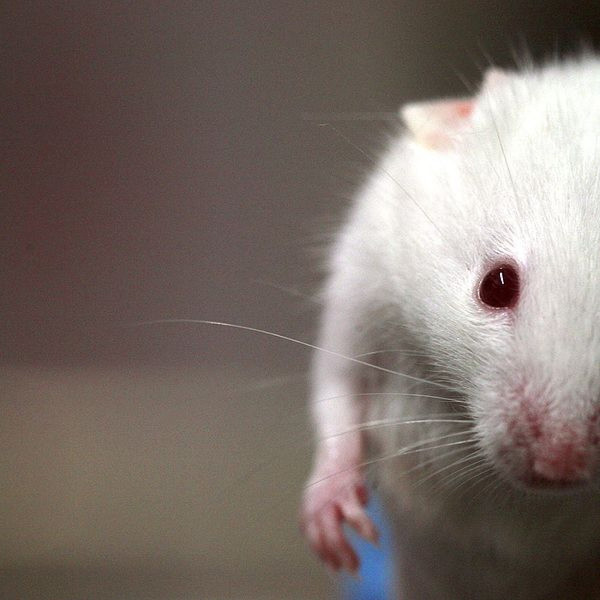Anti-HIV Drug Could Be Repurposed To Fight Aggressive Breast Cancer

Scientists think an anti-HIV drug may be useful in combating a particularly aggressive kind of breast cancer, especially now that it has proven capable of arresting the development of tumors in mice.
Johns Hopkins School of Medicine researchers found that the drug nelfinavir successfully inhibited the growth of HER2-positive breast cancer cells both in the lab and in mice. They published their results on Friday in the Journal of the National Cancer Institute.
Breast cancer is classified as HER2-positive if tests can detect presence of the protein human epidermal growth factor receptor 2, which promotes cancer cell growth. HER-2 positive breast cancer tends to be more aggressive and less responsive to hormone treatments than other types of breast cancer.
The HIV drug was approved by the US Food and Drug Administration in 1997, and is sold under the brand name Viracept. It works by inhibiting HIV proteases, or protein-cleaving enzymes, that the virus needs to reproduce.
But in HER2 breast cancer cells, nelfinavir acts on a chaperone protein called heat shock protein 90, also known as HSP90, which helps stabilize other proteins involved in tumor growth.
Most existing treatments for HER2-positive breast cancer focus on targeting HER2 itself, so one possible advantage of nelfinavir is that it could inhibit cancer cells that have mutated to escape other drugs. And indeed, the team found that nelfinavir could inhibit HER2-positive breast cancer cells that are resistant to the two most common HER2-targeting drugs, trastuzumab and lapatinib.
“It’s not acting on the receptor itself, but somewhere downstream,” senior author Jun Liu explained in a phone interview.
For the past few years, researchers have been exploring nelfinavir’s possible use in combating a wide range of cancers, though no previous studies have focused specifically on HER2-positive breast cancer, according to Liu.
Liu and his team plucked nelfinavir from the Johns Hopkins Drug Library, which contains information on many existing FDA-approved drugs.
“If we find an existing drug with anticancer activity or the ability to treat another disease, we can rapidly convert that into a clinical study,” Liu said.
Since nelfinavir has already been deemed safe by the FDA and has been used in people for more than a decade, translating it into a breast cancer drug will likely take much less time than creating an entirely new compound.
Plus, Liu says, in the meantime physicians would have the option of prescribing nelfinavir off-label -- meaning for conditions other than the drug's primary target -- to their patients. While it’s not quite certain what the side effects of nelfinavir would be in breast cancer patients, but we do already know what crops up in HIV patients. The most common side effects reported are flatulence, diarrhea and abdominal pain, and rare side effects include kidney stones and allergic reactions.
“With a relatively low toxicity profile and much available information on its drug–drug interactions and on pharmacokinetics, nelfinavir is ready for clinical testing in HER2 breast cancer patients,” the authors wrote.
SOURCE: Sup Shim et al. “Selective Inhibition of HER2-Positive Breast Cancer Cells by the HIV Protease Inhibitor Nelfinavir.” Journal of the National Cancer Society published online 5 October 2012.
© Copyright IBTimes 2025. All rights reserved.





















